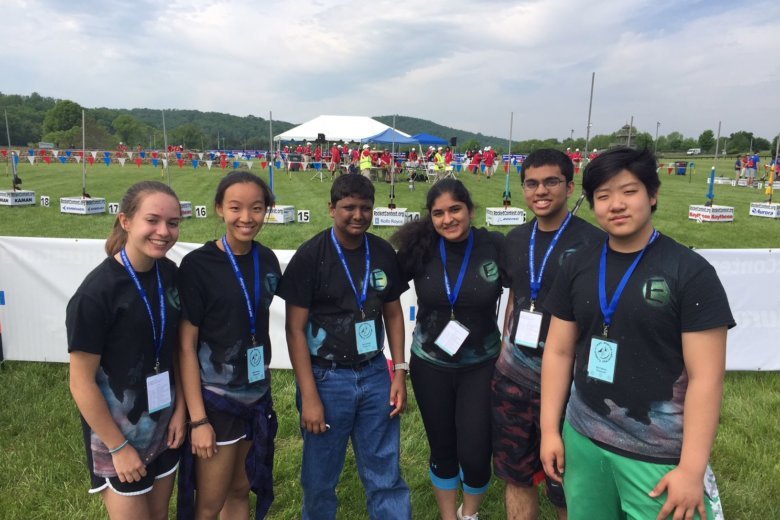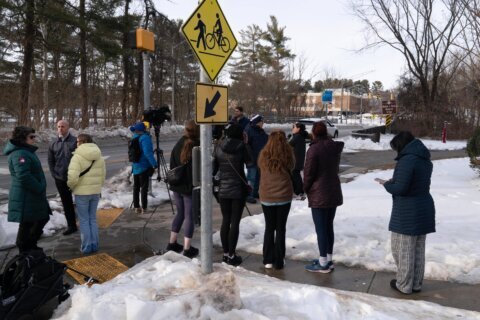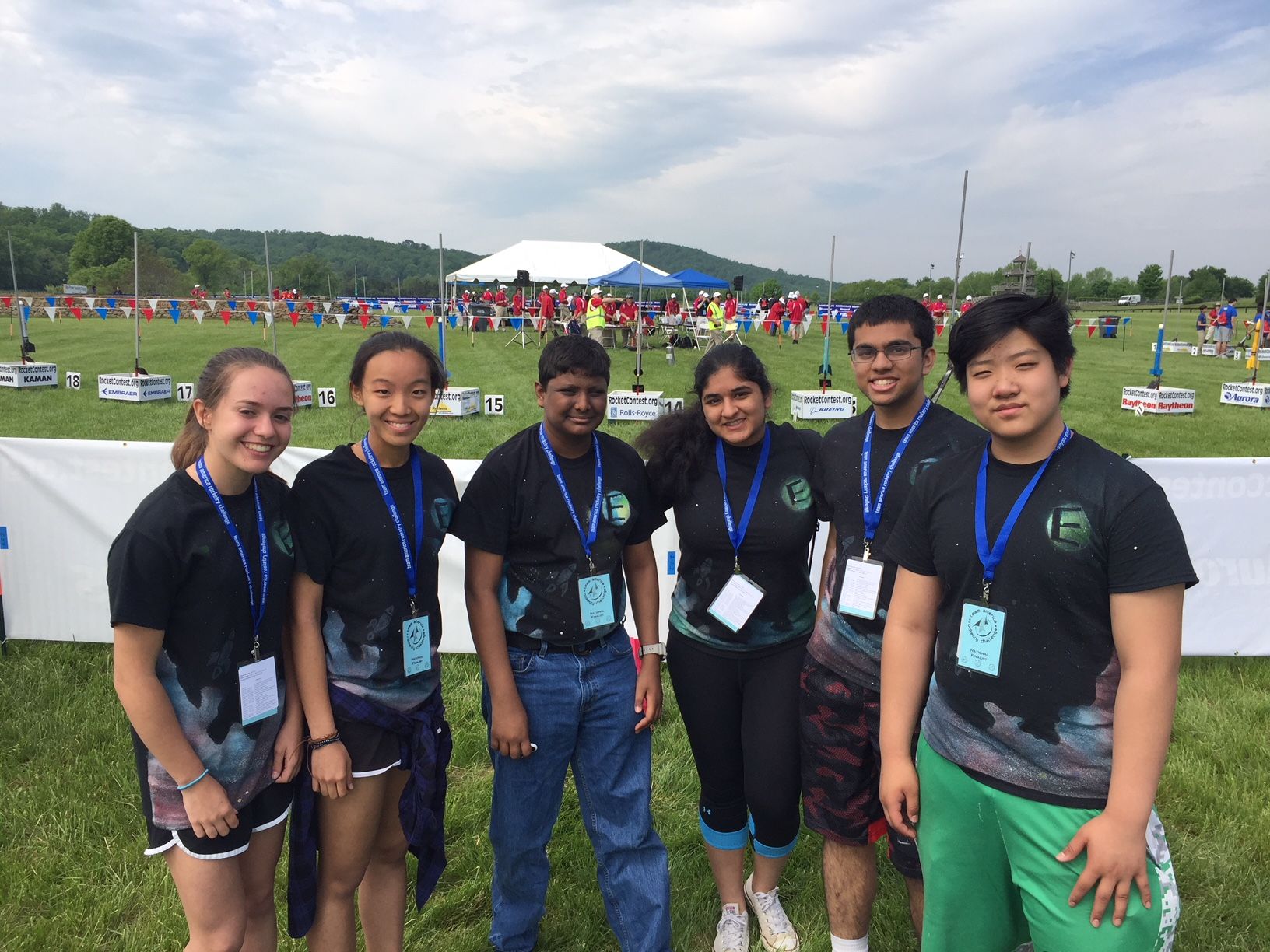
Team America Rocketry Challenge National finals are today in The Plains. Some students came from as far as Hawaii. Explorer Post 1010 came from Rockville. The goal? Send 2 eggs 800 ft high, for 41-43 seconds, ace the landing. More @WTOP pic.twitter.com/AxzQ5GoaSf
— John Domen (@JDDsays) May 12, 2018
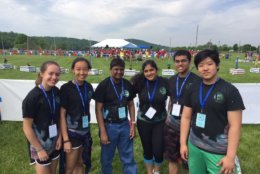
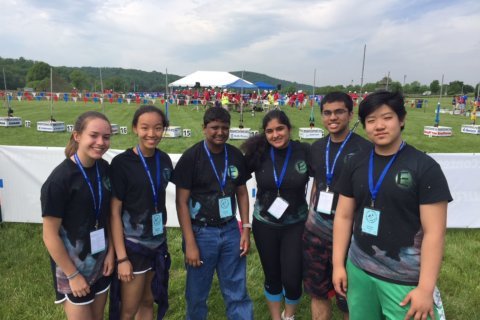
WASHINGTON — Hundreds of high school kids from around the country competed in a simple task of physics: send two eggs 800 feet into the sky and get to land 41 to 43 seconds later in Fauquier County, Virginia, for the Team America Rocketry Challenge on Saturday.
The competition brought the top 100 teams from across the country — some as far away as Hawaii, Idaho, and Texas, as well as a handful of local teams from the DM — to a field in The Plains, Virginia.
The goal? The eggs must look like they did when the left the farm.
“If they crack, you’re disqualified. If they break, you’re disqualified,” said Annslee Bottoms, a sophomore from Tharptown High School in northwest Alabama. “This is a simulation, almost, and that’s your people. You‘ve got to make sure your people get back home.”
One team, Explorer Post 1010, out of Rockville stood huddled near their launchpad hoping for a big result, too.
“It’s a great opportunity — a great entrance to STEM, especially aerospace,” said Mayilan Thanigai.
“If you do end up doing well in nationals, there is scholarship money,” said Susannah Gordon, whose brother participated in this program before heading off to college.
Gordon’s brother now has his doctorate and will be working in the aerospace missile defense field.
“This was a good way for him to really get into that, and it really made him get friends [that] he still talks to now,” said Gordon.
Whether you’re from the area like Post 1010, or like Bottoms and are from a small town in Alabama, getting to complete is a big deal.
“This is our first year ever in TARC, our first year ever hearing about rocketry or skin drag or aerodynamics,” said Bottoms.
And she knows getting this far is pretty meaningful for any student who aspires to major in engineering.
“This opens doors to kids for future jobs, future opportunities. We’re the generation that’s going to go to Mars. And this is how we’re going to get there,” she said.
Students from Creekview High School in Georgia took home the top prize.

